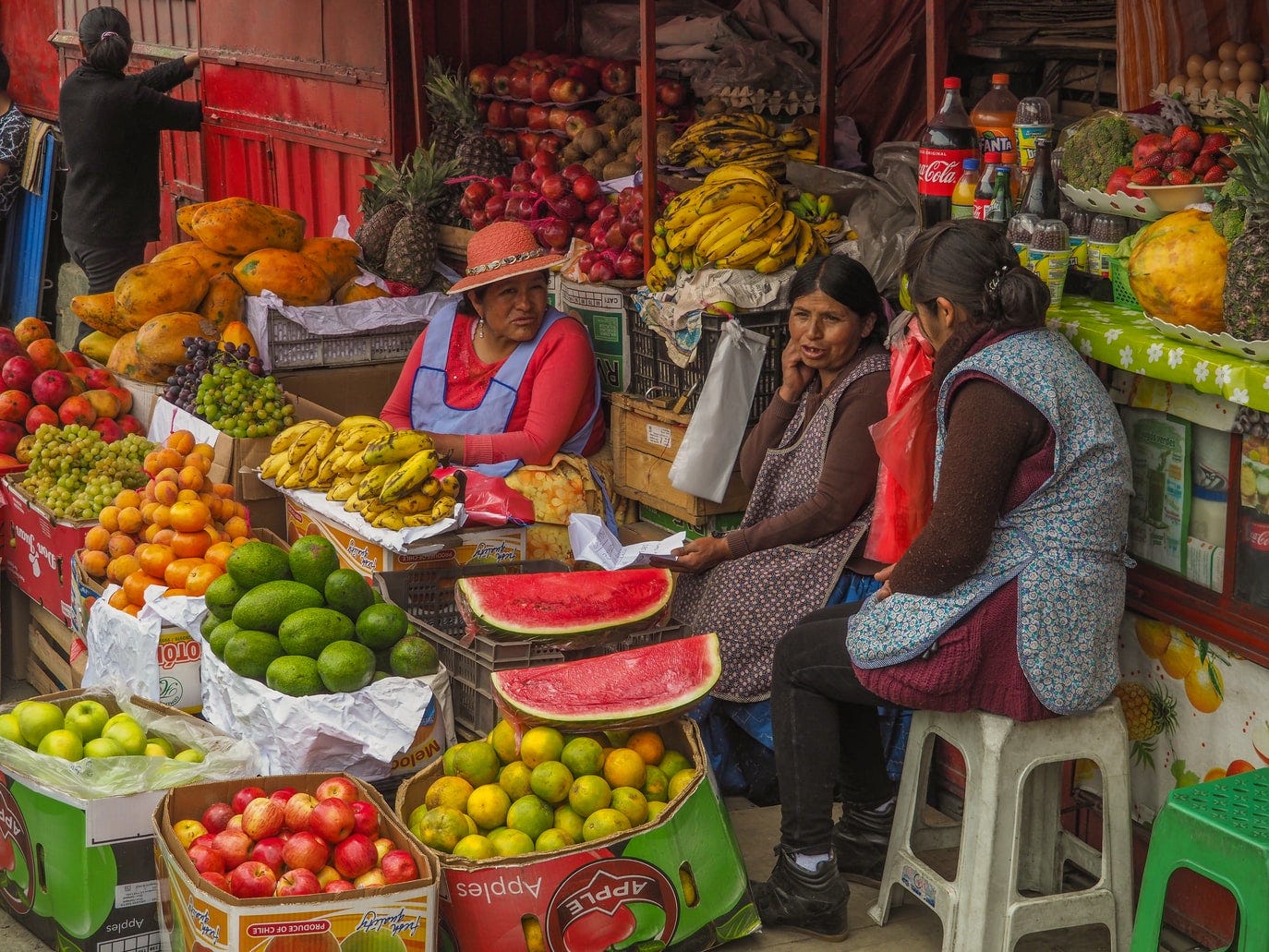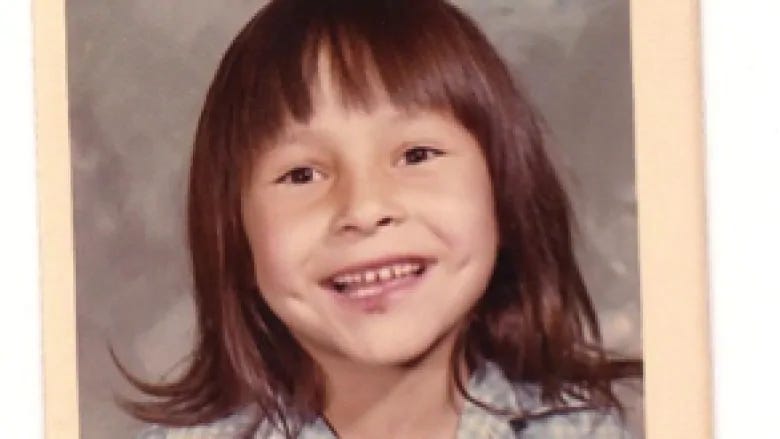My grandma is Indigenous and her first language was Quechua, an Indigenous language in Bolivia.
Only later in life did she learn to speak Spanish. To this day, her Spanish is still a little broken and sometimes I have to guess what she’s trying to say. But I love it because it reminds me that she’s still very much Indigenous.
Growing up she would tell me stories of her family. How much she loved her kind father, strict mother and her funny sisters. How she would walk 50 miles just to buy some goods from the market (which would take a few days). How she almost died because she was so poor and malnourished. How she used to grow potatoes and how much she loved flowers in her garden.
Then being an Indigenous mother meant her children were taken from her by force. It meant being put in jail by her husband’s family because she wanted to divorce her alcoholic/abusive husband. It meant Spanish nuns refusing to return her baby daughter and instead giving her up for adoption.
Photo credit: Lesly Derksen (Unsplash)
Sadly, my grandma’s story wasn’t exclusive to her.
She told me stories of how Indigenous women in Bolivia were regularly being murdered and no one cared enough to speak up about this. She wanted to fight and say “this isn’t right! We have to do something about this!” But was quickly turned down by friends and family who told her she’d go nowhere fighting the status quo.
She learned that Indigenous women were indispensable. Not allowed to want or have the things that you and I can want and have them.
The fact is, no one should endure what she had to endure in her lifetime. Despite all this, she is the kindest, most humble, grounding person. She is the most powerful person I know.
As you can imagine, my grandma is a big reason why I have a profound distrust of unjust systems and authorities. Why at my core, I am a rebel. Why I have an obligation to speak up - via The Misfit newsletter - and carry the torch my grandma handed down to me.
The Burden of Indigenous People All Around the World
Indigenous people suffer in Canada and the United States and every damn country in the world. Not just in Bolivia.
For example, in Western Canada, a First Nations community (groups of indigenous peoples of Canada) found the remains of ~200 children on the grounds of a former residential school - adding to the hundreds of thousands of children remains found in these schools. In this particular case, the remains are thought to belong to band members of Ktunaxa Nation (source).
These findings resurfaced the trauma that countless Indigenous people experienced. They have already felt that Canada has massively failed them. Now they have to come to terms with the fact that those who should’ve been taking care of their children were instead killing them.
But progress is starting to happen… Thursday, September 30th, 2021 now marks the “National Day for Truth and Reconciliation” here in Canada.
“The day honours the lost children and Survivors of residential schools, their families and communities. Public commemoration of the tragic and painful history and ongoing impacts of residential schools is a vital component of the reconciliation process.” (source)
To honour this day, people wore an orange shirt which is symbolic because:
A First Nations girl called Phyllis Webstad, a Northern Secwepemc (Shuswap) from the Stswecem'c Xgat'tem First Nation, arrived to school wearing an orange shirt on her first day. But the orange shirt was taken from her which is now a symbol of the stripping away of culture, freedom and self-esteem experienced by all the Indigenous children over the years.
Photo Credit of Phyllis Jack Webstad here
This past Thursday, on the day of truth and reconciliation, I made it a point to watch documentaries created by First Nations people on the issues that are important to them. I read up on their history, I tried to think about what reconciliation means and to be honest, I’m not I’m even close to an answer!
If you’re curious, here are a few of the resources I consumed:
I think reconciliation needs to mean something and for it to mean something there needs to be action. For starters, reconciliation needs to be a priority of the government. Not just a slogan line thrown at people, or a trend, or a box to be ticked to win votes.
Reconciliation needs to be about supporting Indigenous identities, languages, culture and nationhood. About recognizing the relationship they have with their land, asking for advice on how to manage Canada’s environment and resources. About learning their history (in their own words) and passing it down to our generations.
I know my grandma has internalized all the injustices she’s experienced as her fault. As if she deserved them because she was led to believe she was the world’s biggest problem.
Now it’s our responsibility to tell her - and all Indigenous people - that she was never the problem.
We can do that by exaulting and revering Indigenous people. By being kind to them. By publicly saying “I’m sorry. We have wronged you. What can we do for you?” and then actually listening/executing on that advice with the humblest of hearts.
Why Bitcoin Speaks to Me as an Indigenous-Descent Woman
When I think about my grandma’s generation, I notice that it’s about the colonialist powers consolidating that power. When I think about my generation, it’s about disintegrating that centralized power.
Bitcoin is doing that, but with wealth. It’s taking concentrated wealth and dispersing it back to the people. Because bitcoin is a savings account that cannot be touched, taken away, diluted or manipulated, a person has agency of their financial life.
By having bitcoin, an Indigenous woman can decide how much wealth she can accumulate, how to spend it and store it.
No one is telling her whether she can be in control of her money. Whether she can survive or not. Whether she stays home or not, whether she can keep her children or not, whether she is worthy or not. She has basic rights.
With bitcoin, she is a little less oppressed because she can control her own money.
Never in history, have we seen a transfer of wealth take place like we are seeing it with decentralized money. It’s a way to fight the tight grip of racist colonialism on Indigenous people that still lives today. And that is a wonderful thing. A fair thing… I’m here for that revolution.
To all my dear bitcoiners out there, who also believe that bitcoin is the great equalizer, I ask you: what are you doing to ensure the oppressed get a fair fighting chance?
“Don't accept that what's happening
Is just a case of others' suffering
Or you'll find that you're joining in
The turning awayNo more turning away
From the weak and the weary
No more turning away from the coldness inside
Just a world that we all must share
It's not enough just to stand and stare
Is it only a dream that there'll be
No more turning away?”- On the turning away, Pink Floyd




